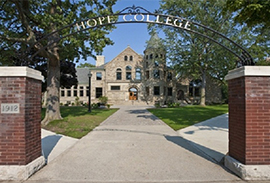1. C++ Basics
C++ is a compiled language, meaning you write source code, compile it to machine code using a compiler (like GCC or Clang), and then execute the compiled program.
Basic C++ Program:
#include <iostream> // Include input/output library
int main() {
std::cout << "Hello, World!" << std::endl; // Print message to console
return 0; // Return 0, indicating successful program termination
}
Key Points:
- #include <iostream>: This includes the Input/Output stream library, which allows us to use std::cout and std::cin.
- main() Function: The entry point for any C++ program. The int return type signifies the exit status of the program.
- std::cout: Standard output stream, used for printing to the console.
- std::endl: Ends the current line and flushes the output buffer.
2. Data Types
C++ provides a wide variety of data types for different purposes, including primitive and user-defined data types.
Primitive Data Types:
| Type |
Description |
Example |
| int |
Integer numbers |
int age = 25; |
| float |
Floating-point numbers |
float weight = 60.5; |
| double |
Double-precision float |
double pi = 3.14159; |
| char |
Single character |
char grade = ‘A’; |
| bool |
Boolean (True/False) |
bool isHappy = true; |
| void |
Represents no type or void |
Used in functions with no return value |
Modifiers for Data Types:
- Signed/Unsigned: Modifies integer types to include negative numbers or only positive numbers.
- Short/Long: Modifies integer types to reduce or extend their storage capacity.
short int shortNumber = 10; // Uses less memory
unsigned int positiveNumber = 42; // Only stores positive values
long long int largeNumber = 9223372036854775807;
User-Defined Data Types:
- struct: Used to group different data types together.
- enum: Used to define an enumeration (a set of named integral constants).
struct Person {
int age;
char gender;
};
enum Day { Sunday, Monday, Tuesday, Wednesday, Thursday, Friday, Saturday };
3. Variables and Constants
Variable Declaration:
Variables in C++ must be declared before they are used, specifying their type.
int age = 25; // Integer variable
float temperature = 36.6; // Float variable
char initial = 'J'; // Character variable
bool isStudent = true; // Boolean variable
Constants:
Constants in C++ are immutable and can be defined using the const keyword.
const double PI = 3.14159; // Constant value, cannot be changed
Alternatively, constants can also be defined using #define.
4. Operators in C++
C++ supports a wide variety of operators for performing operations on variables.
Arithmetic Operators:
| Operator |
Description |
Example |
| + |
Addition |
a + b |
| – |
Subtraction |
a – b |
| * |
Multiplication |
a * b |
| / |
Division |
a / b |
| % |
Modulus (Remainder) |
a % b |
Relational Operators:
| Operator |
Description |
Example |
| == |
Equal to |
a == b |
| != |
Not equal to |
a != b |
| > |
Greater than |
a > b |
| < |
Less than |
a < b |
| >= |
Greater or equal |
a >= b |
| <= |
Less or equal |
a <= b |
Logical Operators:
| Operator |
Description |
Example |
| && |
Logical AND |
a && b |
| ` |
|
` |
| ! |
Logical NOT |
!a |
Assignment Operators:
| Operator |
Description |
Example |
| = |
Assign value |
a = b |
| += |
Add and assign |
a += b |
| -= |
Subtract and assign |
a -= b |
| *= |
Multiply and assign |
a *= b |
| /= |
Divide and assign |
a /= b |
Increment/Decrement Operators:
| Operator |
Description |
Example |
| ++a |
Pre-increment (before use) |
++a |
| a++ |
Post-increment (after use) |
a++ |
| –a |
Pre-decrement (before use) |
–a |
| a– |
Post-decrement (after use) |
a– |
5. Control Structures
C++ provides control structures like conditional statements and loops to control the flow of execution in programs.
If-Else Statement:
if (age >= 18) {
std::cout << "Adult";
} else {
std::cout << "Minor";
}
Switch Case:
int day = 3;
switch (day) {
case 1: std::cout << "Monday"; break;
case 2: std::cout << "Tuesday"; break;
case 3: std::cout << "Wednesday"; break;
default: std::cout << "Another day";
}
Ternary Operator:
std::string result = (age >= 18) ? "Adult" : "Minor";
6. Loops
Loops allow repetitive execution of a block of code.
For Loop:
for (int i = 0; i < 5; i++) {
std::cout << i << std::endl;
}
While Loop:
int i = 0;
while (i < 5) {
std::cout << i << std::endl;
i++;
}
Do-While Loop:
int i = 0;
do {
std::cout << i << std::endl;
i++;
} while (i < 5);
Break and Continue:
- break: Exits a loop immediately.
- continue: Skips the current iteration and moves to the next one.
for (int i = 0; i < 10; i++) {
if (i == 5) break;
if (i % 2 == 0) continue;
std::cout << i << std::endl;
}
7. Functions in C++
Functions allow code to be modular, reusable, and easier to understand.
Defining and Calling Functions:
int add(int a, int b) {
return a + b;
}
int main() {
int sum = add(5, 3); // Function call
std::cout << sum; // Outputs 8
}
Default Parameters:
int add(int a, int b = 10) {
return a + b;
}
int main() {
std::cout << add(5); // Outputs 15
}
Pass by Value and Reference:
- Pass by Value: The actual value is passed, changes to the parameter inside the function have no effect on the actual argument.
- Pass by Reference: The reference of the variable is passed, changes to the parameter affect the actual argument.
void changeValue(int& x) { // Pass by reference
x = 100;
}
int main() {
int a = 5;
changeValue(a);
std::cout << a; // Outputs 100
}
8. Arrays
Arrays in C++ are used to store multiple values of the same data type.
Declaring Arrays:
int numbers[5] = {1, 2, 3, 4, 5}; // Array with 5 integers
Accessing Array Elements:
int first = numbers[0]; // Access first element
numbers[2] = 10; // Modify the third element
Multidimensional Arrays:
int matrix[2][3] = { {1, 2, 3}, {4, 5, 6} }; // 2x3 matrix
Iterating Arrays:
for (int i = 0; i < 5; i++) {
std::cout << numbers[i] << std::endl;
}
9. Pointers and References
C++ provides powerful memory manipulation features through pointers and
int a = 5;
int* p = &a; // Pointer to integer 'a'
std::cout << *p; // Dereferencing, outputs 5
references.
Pointers:
A pointer is a variable that stores the memory address of another variable.
int a = 5;
int* p = &a; // Pointer to integer 'a'
std::cout << *p; // Dereferencing, outputs 5
- & Operator: Gets the address of a variable.
- * Operator: Dereferences the pointer, accessing the value at the address.
Pointer Arithmetic:
You can perform arithmetic operations on pointers, such as incrementing them to access the next memory location.
int arr[3] = {10, 20, 30};
int* ptr = arr;
std::cout << *(ptr + 1); // Outputs 20
Null Pointers:
A null pointer is a pointer that doesn’t point to any valid address.
References:
References provide an alternative name for a variable. Unlike pointers, they cannot be null or reassigned after initialization.
int a = 10;
int& ref = a; // Reference to variable 'a'
ref = 20; // Changes the value of 'a'
10. Strings
C++ supports strings through both the C-style character array (char[]) and the std::string class.
C-Style Strings:
char greeting[] = "Hello, World!";
std::cout << greeting;
std::string Class:
#include <string>
std::string name = "John";
std::cout << "Hello, " << name << "!";
Common String Operations:
Concatenation:
std::string firstName = "John";
std::string lastName = "Doe";
std::string fullName = firstName + " " + lastName;
Length:
std::string str = "Hello";
std::cout << str.length(); // Outputs 5
Substring:
std::string text = "Hello, World!";
std::string sub = text.substr(0, 5); // Outputs "Hello"
11. Object-Oriented Programming (OOP)
C++ supports the principles of OOP, such as
encapsulation,
inheritance, and
polymorphism.
Classes and Objects:
A class is a blueprint for creating objects.
class Dog {
public:
std::string name;
int age;
void bark() {
std::cout << "Woof!" << std::endl;
}
};
int main() {
Dog myDog;
myDog.name = "Buddy";
myDog.age = 3;
myDog.bark(); // Outputs: Woof!
}
Encapsulation:
Data and functions that manipulate that data are encapsulated within a class.
class Person {
private:
int age;
public:
void setAge(int a) {
age = a;
}
int getAge() {
return age;
}
};
Inheritance:
Inheritance allows one class to inherit properties and methods from another class.
class Animal {
public:
void eat() {
std::cout << "This animal is eating." << std::endl;
}
};
class Dog : public Animal {
public:
void bark() {
std::cout << "Woof!" << std::endl;
}
};
int main() {
Dog myDog;
myDog.eat(); // Inherited from Animal
myDog.bark(); // Defined in Dog
}
Polymorphism:
Polymorphism allows one interface to be used for a general class of actions, typically achieved through function overloading and overriding.
class Animal {
public:
virtual void sound() {
std::cout << "Animal sound" << std::endl;
}
};
class Dog : public Animal {
public:
void sound() override {
std::cout << "Woof!" << std::endl;
}
};
int main() {
Animal* animal = new Dog();
animal->sound(); // Outputs: Woof!
}
Constructors and Destructors:
- Constructor: A special function that initializes an object when it’s created.
- Destructor: A special function that cleans up an object when it’s destroyed.
class Car {
public:
Car() {
std::cout << "Car created" << std::endl;
}
~Car() {
std::cout << "Car destroyed" << std::endl;
}
};
12. Dynamic Memory Management
C++ allows you to manually manage memory allocation and deallocation using new and delete.
Dynamic Allocation:
int* p = new int(10); // Allocates memory for an integer
delete p; // Deallocates memory
new[] and delete[]: Used to allocate and deallocate arrays.
int* arr = new int[10];
delete[] arr;
13. Templates
Templates enable generic programming by allowing you to write functions and classes that work with any data type.
Function Template:
template <typename T>
T add(T a, T b) {
return a + b;
}
int main() {
std::cout << add<int>(5, 3); // Outputs 8
std::cout << add<double>(5.5, 2.3); // Outputs 7.8
}
Class Template:
template <typename T>
class Box {
public:
T value;
Box(T v) : value(v) {}
T getValue() { return value; }
};
int main() {
Box<int> intBox(123);
std::cout << intBox.getValue(); // Outputs 123
}
14. Standard Template Library (STL)
The STL provides a collection of useful data structures and algorithms.
Common Containers:
Vector: Dynamic array.
#include <vector>
std::vector<int> nums = {1, 2, 3, 4, 5};
Map: Key-value pairs.
#include <map>
std::map<std::string, int> ages;
ages["John"] = 30
;
Set: Unique collection of elements.
#include <set>
std::set<int> uniqueNums = {1, 2, 3, 4};
Stack: LIFO (Last In, First Out).
#include <stack>
std::stack<int> s;
s.push(10);
s.push(20);
Common Algorithms:
STL provides algorithms like sort(), find(), reverse(), etc.
#include <algorithm>
#include <vector>
std::vector<int> nums = {4, 1, 3, 5, 2};
std::sort(nums.begin(), nums.end()); // Sorts in ascending order
15. Exception Handling
C++ provides support for exception handling using try, catch, and throw blocks.
Try-Catch Block:
try {
int result = 10 / 0; // Division by zero
} catch (const std::exception& e) {
std::cout << "Error: " << e.what() << std::endl;
}
Throwing Exceptions:
throw std::invalid_argument("Invalid argument passed!");
16. Namespaces
Namespaces are used to organize code and avoid name collisions.
namespace Math {
int add(int a, int b) {
return a + b;
}
}
int main() {
std::cout << Math::add(5, 3); // Outputs 8
}
Using using Keyword:
using namespace Math;
std::cout << add(5, 3); // No need for Math:: prefix
17. Preprocessor Directives
C++ provides several preprocessor directives for code management.
- #include: Includes the contents of a file.
- #define: Defines constants or macros.
- #ifdef / #ifndef: Conditional compilation.
#define PI 3.14159
#ifdef DEBUG
std::cout << "Debug mode on";
#endif
18. C++ Best Practices
Follow Naming Conventions:
- Use camelCase for variables and functions.
- Use PascalCase for class names.
Use RAII for Memory Management:
- Resource Acquisition Is Initialization (RAII) ensures that resources are properly released.
Prefer std::string Over C-Style Strings:
- std::string handles memory automatically and is easier to use.
Use Smart Pointers:
- Use std::shared_ptr and std::unique_ptr for automatic memory management and to avoid memory leaks.
Avoid Magic Numbers:
- Define meaningful constants instead of using raw numbers in your code.
Always Check for Pointer Validity:
- Ensure pointers are valid before dereferencing them.
Write Modular and Reusable Code:
- Break large functions into smaller, reusable ones for readability and maintainability.
19. Conclusion
C++ is a robust and versatile language that provides excellent control over system resources, making it ideal for developing high-performance applications. This comprehensive covered fundamental and advanced concepts, from basic syntax and data types to object-oriented programming, memory management, templates, and the Standard Template Library (STL).
As you continue developing in C++, adhering to best practices such as effective memory management, code modularity, and leveraging STL and RAII principles will ensure your C++ programs are efficient, maintainable, and scalable. Happy coding!











